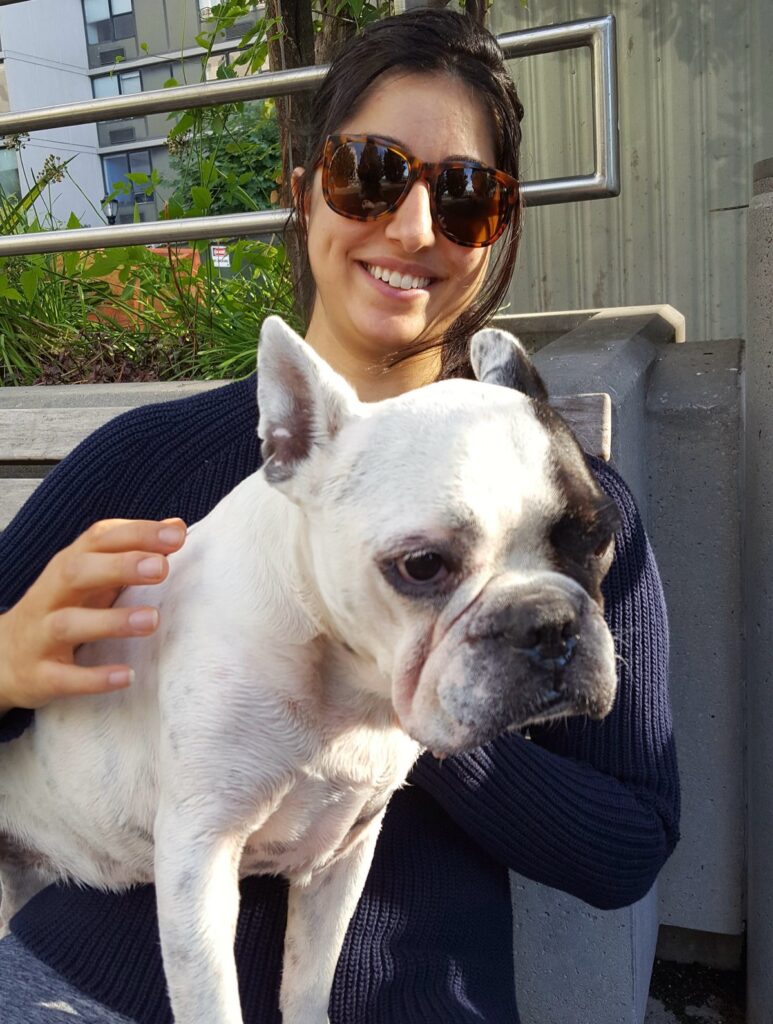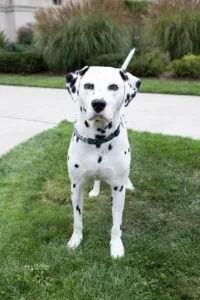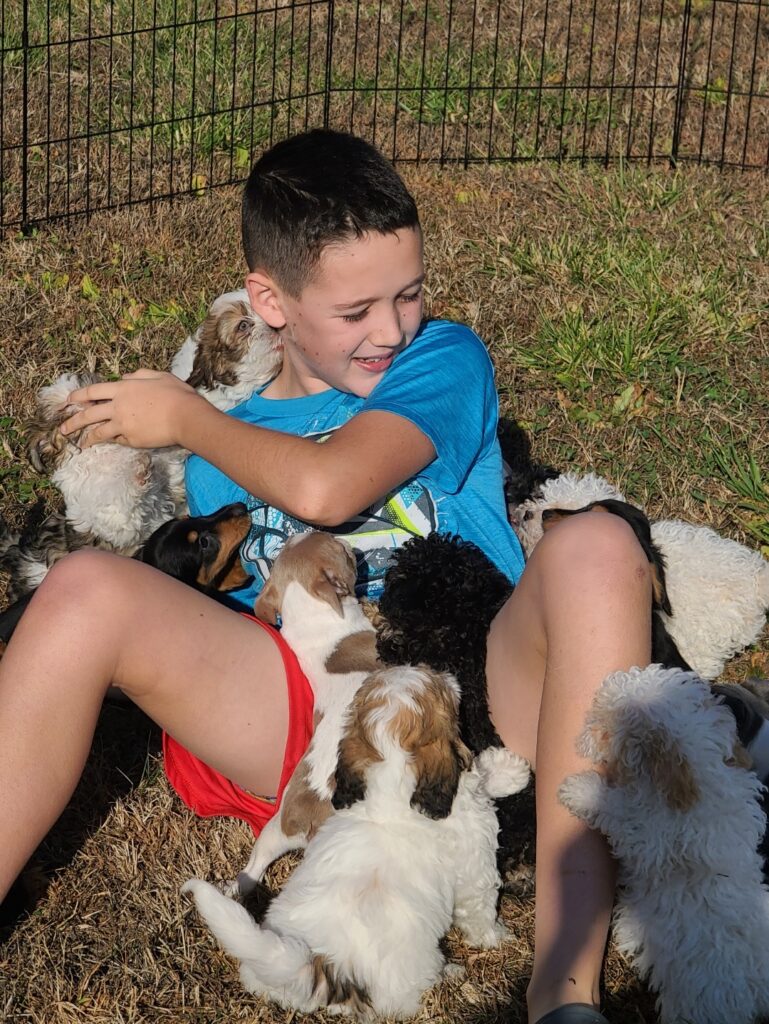Your pet dog can experience fear and anxiety in the same way you do.
While a little nervousness is normal, it can become a problem when it interferes with their daily lives.
Let’s know more in the conversation.
Why Dogs Get Anxious

Here’s the rundown on why most dogs get so anxious.
Think of it this way:
“You’re walking down the street, minding your own business, and suddenly a loud motorcycle zooms by. Your heart races, palms get sweaty and anxiety hits you hard and soft. Well, dogs experience that too, and for many reasons.”
Just like us, these creatures also breathe and exist in the same air as we do.
When puppies are young, they need to meet new people, animals, and experience different environments. If they miss out on this socialization period, they might be more anxious around unfamiliar things later in life.
Sometimes, anxiety also can be a sign of an underlying health problem. If your dog’s behavior changes suddenly, it’s always a good idea to check with a vet.
The good news is that there are ways to help your dog manage their anxiety.
Let’s talk about some calming techniques next…
1- Don’t Freak Out When Your Dog Freaks Out

Your dog reads your emotions!
If you’re stressed, they’ll pick up on it and get anxious too.
It’s always best to act normal and avoid cuddling or talking too much, as these can seem like rewards for their anxiety.
Instead, try calmly speaking to your dog in a firm but kind voice. Let them know it’s okay and that you’re there for them.
2- Be The Boss But In A Nice Way

Show your dog you’re in control by doing some training tricks, even in a stressful situation.
This distracts them and reminds them you’re the leader, keeping things calm.
You can start off by giving simple commands like “sit,” “down,” or “stay” to refocus their attention and reassure them that everything is alright.
3- Create a Safe Space for It
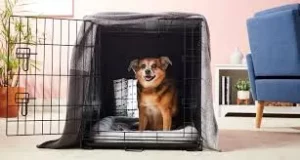
Train your dog to love their crate because it’s their little anxiety-free zone!
Make sure it’s a comfortable space with soft bedding and a familiar toy or two.
Put some toys in there and act casual when they go in.
Don’t make a big deal out of it – forcing them can backfire.
Ideally, your dog should see their crate as a safe haven they can retreat to when feeling overwhelmed.
4- Understanding Extent of Anxiety

When your dog is scared, their body releases chemicals that make them anxious.
This can become a habit, so it’s important to stay calm and help them re-learn that scary things aren’t so bad.
Remember, Fear can manifest in different ways, like trembling, shaking, whining, or barking.
By staying calm and collected, you can help your dog regulate their emotions and feel more secure.
5- Helping Your Dog Face Their Fears

If your dog is scared of the vet, take them for walks by the vet’s office and reward them for staying calm.
The best way to gradually get close is by treating your dog with treats!
Desensitization, slowly exposing your dog to their fears in a controlled way, can help them build confidence and overcome their anxieties.
6. Cheer Your Pup Up !

Once your dog is comfortable with being near the vet, take them into the waiting room.
Reward it with calm behavior and slowly build up the time you spend there.
This way, going to the vet won’t scare it anymore.
Remember, these steps should be taken gradually, at your dog’s pace.
Ah yes! If they seem overwhelmed, take a step back and try again another day but don’t give up!
7. Confront the Big Bad
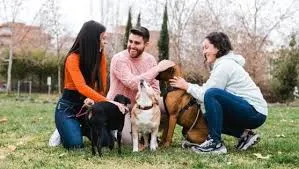
For some fears, like fireworks, you can play recordings at a low volume and reward calmness.
If your dog seems stressed, take a step back and try again later. Counterconditioning can help replace negative associations with positive ones.
By pairing the scary trigger (fireworks noise) with something pleasant (treats), you can help your dog develop a more positive connection.
8. Measure Up With Science

You can buy calming pheromones that mimic what mother dogs release to their pups. This can make your dog feel safe and relaxed.
Pheromones are a natural chemical that soothes your pups’ anxiety down. These pheromones are synthetic versions of chemicals that naturally appease signals.
These calming pheromones come in diffusers, sprays, and in other different vessels to keep your pet calm and relaxed.
9. Blindfold Option

You can try a special cap that covers your dog’s eyes and reduces visual stimulation. This can be helpful for dogs scared of thunderstorms or fireworks.
Make sure your dog is comfortable with it beforehand!
The thing is that face blinder caps can be a helpful tool for some dogs, but it’s important to introduce them gradually in a non-threatening situation and make sure your dog tolerates them well.
10. Hug It Out (With A Shirt)

A tight-fitting shirt, also known as an anxiety wrap, can apply gentle pressure on your dog’s body, calming them down.
This can be helpful for separation anxiety, noise phobias, and travel anxiety. These shirts can provide a sense of security and comfort for some dogs.
11. Plan out Puzzle Time!
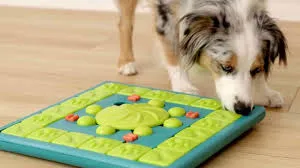
Puzzle toys distract your dog and keep their mind occupied, taking the focus off their anxiety.
Give them the toy before they get anxious, so it’s not seen as a reward for bad behavior.
Mental stimulation is important for all dogs, but it can be especially helpful for anxious pups.
By engaging their minds, you can help them burn off excess energy and distract them from their worries.
12- Try Natural Remedies

There are some natural supplements and herbal remedies that may help with anxiety.
Before giving any of it, first talk to your vet before giving your dog anything new.
There are various natural options available, but it’s important to consult your veterinarian before introducing any remedy
The first step is to identify what’s triggering your dog’s anxiety.
Once you know the cause, you can start to reduce the intensity of the stimulus.




